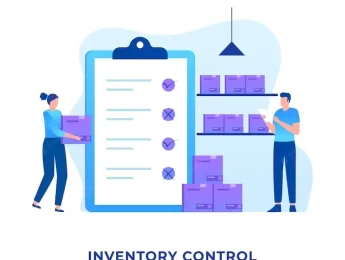Maintaining a Quality Management System (QMS) and adhering to ISO 9001:2015 standards present several challenges for organisations. One significant obstacle is ensuring continuous compliance with evolving requirements and updates to the standard. This demands regular review and adaptation of processes, documentation, and procedures to align with the latest ISO guidelines.
Additionally, fostering a quality culture throughout the organisation requires consistent training, communication, and engagement of employees at all levels. Another challenge lies in effectively managing documentation and record-keeping to demonstrate conformity to ISO standards while avoiding unnecessary bureaucracy.
Sustaining the momentum of improvement initiatives and preventing complacency after initial certification can be difficult. Continuous monitoring, measurement, and process analysis are crucial to identifying areas for enhancement and maintaining the effectiveness of the QMS.
Lastly, external audits and certification maintenance necessitate resource allocation, preparation, and coordination, adding to the complexity of sustaining ISO 9001:2015 certification over time. Addressing these challenges requires commitment, dedication, and a proactive approach to quality management.
Upon completion of this course, participants will be able to:
- Gain insights into the foundational principles of Quality Management Systems (QMS)
- Explore the advantages of integrating an effective QMS to enhance service excellence.
- Grasp essential concepts, clauses, and mandates outlined in ISO 9001:2015
- Construct a structured approach for deploying ISO 9001:2015 using the PDCA cycle (Plan-Do-Check-Act).
- Conduct an initial assessment to gauge your organisation's alignment with ISO 9001:2015 standards.
- Enhance your proficiency in devising improvement strategies and addressing deficiencies.
- Execute critical elements of ISO 9001:2015 within your organisational framework.
This course is designed for anyone responsible for maintaining quality management standards across the business. It would be most beneficial for:
- Business Owners
- Security Managers
- Quality Assurance Officers
- Project Managers
- Operations Managers
- Departmental Managers
- Directors
- Chief Executives
- Contract Managers
- IT Consultants
- HR Professionals
This course uses a variety of adult learning styles to aid full understanding and comprehension. Participants will take part in trainer-led discussions to discuss the implications of ISO standards for their business and review several quality management systems to enable the monitoring and evaluation of compliance techniques.
They will work together to review their current processes, assess pain points and address change plans in order to improve procedures to make departments compliant and more efficient in this area.
Day 5 of each course is reserved for a Q&A session, which may occur off-site. For 10-day courses, this also applies to day 10
Section 1: ISO 9001:2015 Its Relevance to Your Business
- Introduction to ISO 9001:2015 standards.
- Understanding the principles of quality management.
- Implementing ISO 9001:2015 in your business.
- Auditing and certification process.
- Benefits of ISO 9001:2015 for your business.
- Continuous improvement and compliance maintenance.
- Case studies and real-world applications.
- Integration with other management systems.
- Risk management and mitigation strategies.
- Customer satisfaction and relationship management.
- Cost-effective quality management practices.
- Adapting ISO 9001:2015 to different business sectors.
- Regulatory requirements and legal implications.
Section 2: Quality Management Within Your Organisation
- Establishing quality objectives and policies.
- Implementing quality management systems.
- Quality planning and process improvement.
- Measurement, analysis, and evaluation of quality.
- Leadership's role in quality management.
- Training and competence development.
- Supplier management and quality assurance.
- Customer focus and satisfaction strategies.
- Risk-based thinking in quality management.
- Continuous improvement methodologies.
- Regulatory compliance and standards adherence.
- Integrating quality management across departments.
Section 3: Leadership Responsibilities to Meet ISO Standards
- Setting the tone at the top for quality management.
- Communicating the importance of ISO standards to the organisation.
- Leading by example in adhering to ISO requirements.
- Aligning organisational goals with ISO standards.
- Building a culture of quality and compliance.
- Providing resources and support for ISO implementation.
- Ensuring accountability and responsibility at all levels.
- Monitoring and evaluating ISO compliance efforts.
- Facilitating continuous improvement initiatives.
- Handling audits and certification processes effectively.
- Addressing non-conformities and implementing corrective actions.
- Developing leadership skills for effective ISO management.
Section 4: Project Planning for ISO Restructures
- Developing a project plan tailored to ISO requirements.
- Resource allocation and budgeting for ISO restructures.
- Risk assessment and mitigation strategies.
- Establishing clear timelines and milestones.
- Communication strategies for project stakeholders.
- Implementing change management principles.
- Monitoring progress and adapting the plan as needed.
- Ensuring compliance with ISO standards throughout the process.
- Training and development initiatives for staff involved in the restructuring.
- Documenting and evaluating the outcomes of the ISO restructure.
Section 5: Quality Management System Implementation
- Defining processes and procedures for the QMS.
- Documenting and controlling quality-related documents.
- Training and awareness programs for QMS stakeholders.
- Implementing risk-based thinking in the QMS.
- Conducting internal audits to assess QMS effectiveness.
- Addressing non-conformities and implementing corrective actions.
- Continual improvement initiatives within the QMS.
- Integration of QMS with other management systems.
- Compliance with relevant standards and regulations.
Section 6: ISO Procedures into the Operation
- Training staff on new ISO procedures and their importance.
- Establishing monitoring and control mechanisms for ISO compliance.
- Integrating ISO documentation into operational processes.
- Conducting regular audits to ensure adherence to ISO procedures.
- Addressing non-conformities and implementing corrective actions.
- Continuous improvement initiatives in operations aligned with ISO standards.
Section 7: ISO Performance Evaluation
- Conduct regular reviews of ISO performance against objectives.
- Identifying areas for improvement based on performance evaluations.
- Communicating performance results to stakeholders.
- Integrating ISO performance evaluation into management reviews.
Upon successful completion of this training course, delegates will be awarded a Holistique Training Certificate of Completion. For those who attend and complete the online training course, a Holistique Training e-Certificate will be provided.
Holistique Training Certificates are accredited by the British Assessment Council (BAC) and The CPD Certification Service (CPD), and are certified under ISO 9001, ISO 21001, and ISO 29993 standards.
CPD credits for this course are granted by our Certificates and will be reflected on the Holistique Training Certificate of Completion. In accordance with the standards of The CPD Certification Service, one CPD credit is awarded per hour of course attendance. A maximum of 50 CPD credits can be claimed for any single course we currently offer.
- Course Code PO3-109
- Course Format Classroom, Online,
- Duration 5 days













